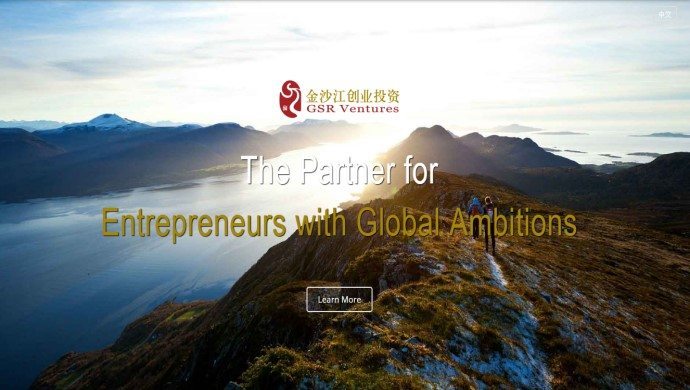In coming years, more Chinese VCs will come to Indonesia as there are less opportunities for consumer Internet companies in China, Chen says

In the past few months, we are seeing more investors coming from China to explore the Indonesian market and the opportunities it offers. According to Jefferson Chen, Partner at GSR Ventures, it is because there are less opportunities for consumer Internet companies in China.
“I think the mobile Internet market has been clearly the single biggest driver for the tech industry in China and the US for the past five years. Right now, it’s come to a point where there are less opportunities for consumer-facing mobile Internet companies in China,” Chen said during his visit to Jakarta last week.
“That’s part of the reasons why we want to look at markets outside of China, where the infrastructure is lagging behind and where there is huge population. We also look at the markets where the economy is on the right track and the mobile penetration is too low but growing. If you look at all these factors, it’s basically Indonesia,” he explained.
With presence in Hong Kong, Silicon Valley and Singapore, GSR primarily invests in Series A and Series B stages, a concept that Chen dubbed as “typical early-stage Silicon Valley-style VC firm.”
When it comes to potential investment, the company is looking for founders with strong combination of local know-how and international exposure, with the ability to attract the best talents and with a regional perspective.
“It doesn’t mean that a company has to have regional presence on day one. It means that certain types of businesses are easier to scale across the region,” he said, adding that on-demand services will be the next big thing in the country.
“There will also be a shift from mobile to enterprise, as has happened in China,” he added.
In the midst of his busy schedule, Chen took the time to sit down with e27 and shared the VC firm’s game-plan for the Southeast Asian market, particularly Indonesia — and why an M&A should never be a startup founder’s end goal.
Here is the edited excerpts from the interview:
Also Read: At a crossroad, will Indonesia follow the path set out by China or India?

Jefferson Chen, Partner, GSR Ventures
Poor infrastructure has always been perceived as a major obstacle for Indonesian tech industry. Yet foreign investors seem very optimistic about this market…
The market is growing. When you’re doing a startup, what’s important is to have a market [where] the fundamentals are strong, [as] you’re not necessarily fighting for a market share. That itself is pretty beneficial for lots of mobile startups.
When we’re looking at these companies in Indonesia, many of them are basically kind of replaying the same story that has been played in China three-five years ago.
So we kind of knew how it might evolve over time. Yes, there are differences, [with] infrastructure [being] one of the issues, but people are coming up with creative ways to solve that.
From what we understand, 80 per cent of Indonesians are living in rural [areas]. Most of these people don’t even have bank accounts. These people are excluded from the hottest e-commerce companies like Tokopedia and MatahariMall.
So there are companies like the one we met today –Kudo– which is providing e-commerce services to rural people using sales agents by combining offline distribution and selling capabilities with e-commerce firms. These are creative ways to solve specific problems like logistics issues.
So there’ll be different types of startups that are going to work in Indonesia.
So how will the relation between China and Southeast Asia develop over the next three years?
Capital moves the fastest. You’ll be seeing more venture capitals coming from China.
Two reasons: one, the domestic opportunity in China is getting to a point where it’s not obvious to find the next Alibaba, Baidu, Tencent, or Didi which we have also invested in.
There are still some large opportunities but the scale might be different, as a tech boom usually follows a platform shift. First with PC, then there is mobile. What is next? Artificial Intelligence? Maybe something else? Not clear.
People who had already seen what has happened in China is trying to find similar business model here.
Second, the capital will be followed by talents.
There is a notion in the industry that Southeast Asia is very slow. What will be your strategy to tackle this?
Right now there’s no proof that IPO has worked for tech startups here [in Indonesia]; most have [done their exits] through acquisitions. There are two reasons: one, there are no tech companies that are actually profitable in Southeast Asia.
It is basically like a J-curve; they haven’t gone through that route. For these companies to grow and eventually have a market share, they should start generating profits which takes time.
Two, it’s the capital market issue. Indonesia doesn’t have a huge domestic stock market, and the trading volume is very low. So this is more like China of many years ago. Most Chinese companies go to the US (NASDAQ) for IPO, because the domestic market doesn’t really understand the business model. You need to get profit to get listed in China, but tech companies are different.
But it’s changed in China. That might also happen here. As the market grows, it might provide a lot of avenues for exits. There are not many people who understand the business model of tech companies. We need very sophisticated institutions who can appreciate the J-curve. It takes time.
Also Read: Indonesia should aspire to be like China, not India: Donald Wihardja
How can companies position themselves to be attractive enough for M&A?
First, I don’t think entrepreneurs should think that way. You’re not building a company to be acquired. You’re building a company with the vision that the firm will eventually be independently run and profitable. That should be the vision for any entrepreneur. Otherwise you’re just a trader. You don’t have the builder mentality, but only the trader mentality. It’s very dangerous for the business.
Having said that, you can try and look at what big companies are trying to do and what is missing in their own ecosystem. Try to fill that gap. For example, payments, logistics or anything that takes time for big companies to build.
What is your opinion on migme that was listed on the stock exchange and what do you think of its deal with Meitu?
I’m not familiar with the company, to be honest. But based on general observation, the very best tech companies don’t go to Australia for listing. They go to NASDAQ.
In Indonesia, they also have what they call the technical IPO, right? It’s not a real exit because there’s no public trading, volume or liquidity. It doesn’t offer a real channel for existing pre-IPO investors to exit. It’s basically putting something in the market and putting a price tag on it.
—
Image Credit: GSR Ventures
The post Entrepreneurs should have a builder mentality, not a trader mentality: Jefferson Chen of GSR Ventures appeared first on e27.